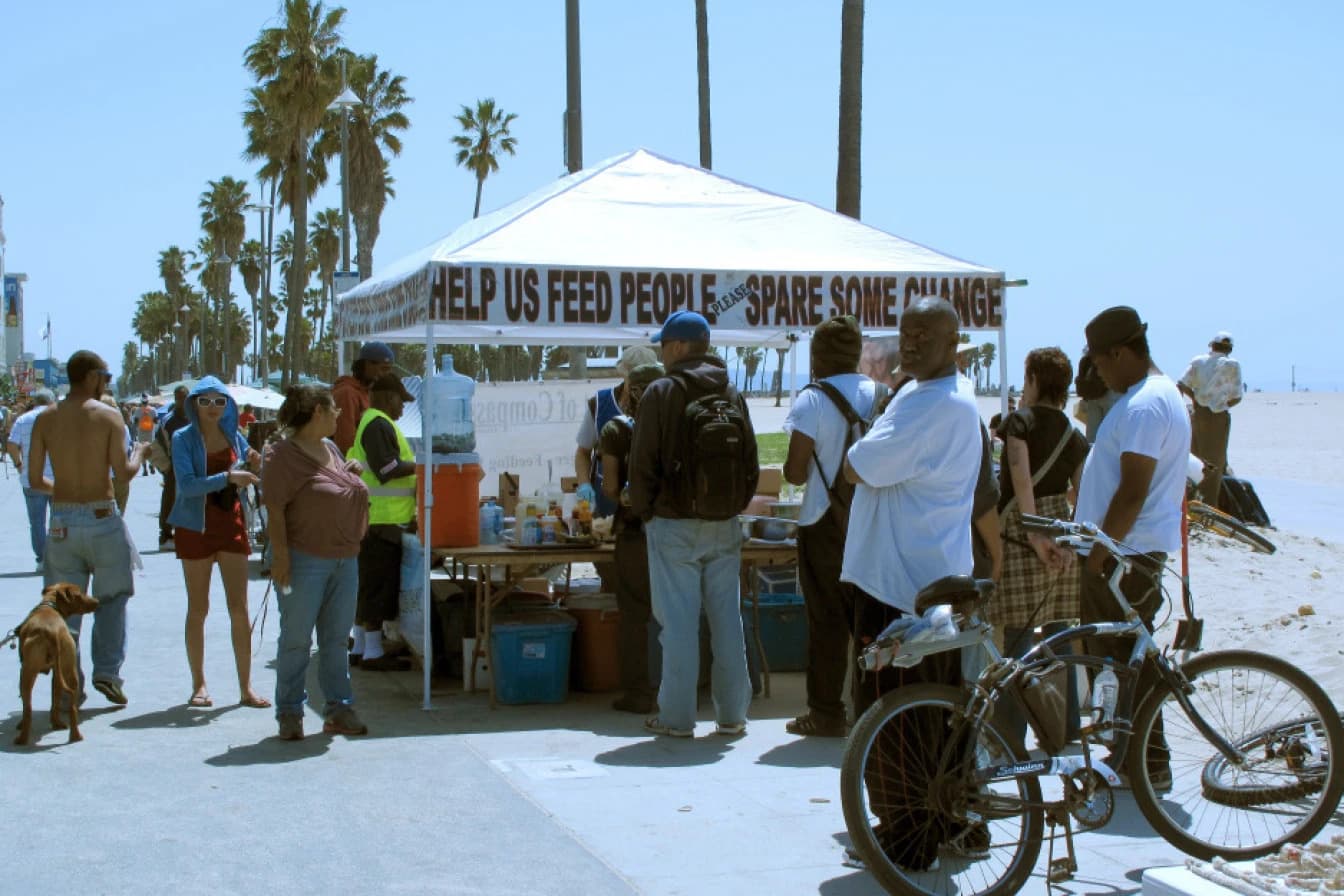California Passes Bill Blocking Cities from Punishing Good Samaritans Who Offer Aid to the Homeless
On Wednesday, the California Legislature passed a measure intended to shield residents from legal repercussions when offering food or other forms of aid to unhoused individuals.
Authored by State Sen. Sasha Renée Pérez, Senate Bill 634 prevents municipalities from enacting or enforcing regulations that stop people from helping unhoused residents access basic survival necessities. This protection extends to the provision of food, water, bedding, shelter, and medical or legal assistance. The bill was co-sponsored by the Inner City Law Center, a nonprofit based in Los Angeles' Skid Row.
Supporters argue the legislation creates a safety net for service providers and good Samaritans.
“You can’t say that it's a crime to give somebody a bottle of water or food or to provide them with legal services or medical services just because they don't have a home,” stated Ishvaku Vashishtha, a legal fellow at the Inner City Law Center. “That is the fundamental premise of this bill.”
Why this bill? The legislation follows the U.S. Supreme Court’s decision last year in Grants Pass v. Johnson, which ruled that cities have the authority to enforce camping bans even when there is no shelter space available. In the wake of that ruling, numerous California cities have either strengthened existing anti-camping ordinances or introduced new bans on encampments.
In February, the Northern California city of Fremont voted to make “aiding and abetting” homeless encampments a crime. Although the city removed that specific language in March following a public outcry, the initial move served as a warning for advocates of homeless rights.
“I think this just highlighted the need for some degree of intervention and for drawing a line in the sand and saying enough is enough,” said Vashishtha, who worked on SB 634.
According to the National Alliance to End Homelessness, dozens of cities across the U.S. have effectively banned food sharing through new restrictions related to food safety or public property usage. Furthermore, some local officials have criticized public feeding programs, arguing that they enable street homelessness.
Examples of this tension include a 2021 incident in Santa Ana, where the city blocked the nonprofit Micah’s Way from feeding unhoused people by denying necessary permits. The organization sued, claiming that feeding the hungry is a protected religious activity—a stance supported by a statement from the U.S. Department of Justice. Additionally, during a 2018 hepatitis A outbreak, the city of El Cajon cited a dozen individuals for feeding homeless people in a public park.
The new state law would not supersede existing local ordinances, such as public health regulations. However, amid President Donald Trump’s recent executive order aimed at overhauling federal homelessness management, advocates are concerned that more cities may attempt to criminalize the act of helping the unhoused.
“We are concerned about this being the start of something dangerous and trying to nip that in the bud,” said Mahdi Manji, policy director for the Inner City Law Center.
While several California municipalities and law enforcement agencies initially opposed the legislation, many withdrew their opposition following amendments to the bill. SB 634 now moves to Governor Gavin Newsom’s desk for a signature.


